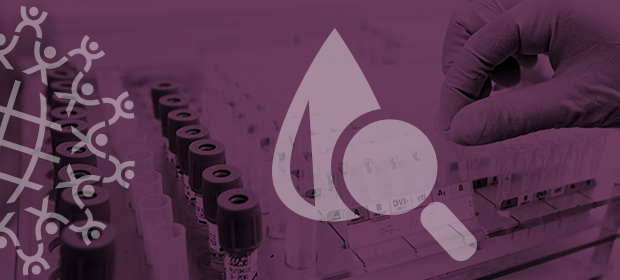Where We Work
See our interactive map


As part of the country’s COVID-19 taskforce, IntraHealth International is partnering with South Sudan to help develop the nation’s preparedness and response plan and enact immediate measures to mitigate the spread of the disease.
As of April 20, 2020, South Sudan had reported only four cases of COVID-19. But the government is continuing with preparations to control the disease and prevent it from spreading. And IntraHealth's staff are ready to support.
“We are directly supporting the Ministry of Health’s COVID-19 incident management team and are participating in the technical working groups with many key partners,” says Alfred Okiria, IntraHealth’s strategic information project director in South Sudan. “We are collaborating in taskforce meetings, risk communication, and strategic information to inform the response.”
The team participated in drafting the country’s COVID-19 preparedness and response plan and risk communication strategy; reviewed and adapted information, education, and communication materials (which were printed and distributed throughout the country by UNICEF and the World Health Organization); and helped develop messaging for the media, including SMS messages for telecommunication companies.
"We use data-driven strategies and creative approaches that help us reach more people."
Additionally, members of IntraHealth’s team are on the country’s COVID-19 data team to monitor world and regional trends and inform prevention efforts nationally and locally. We are working closely with the US Centers for Disease Control and Prevention to prepare information for the high-level team, headed by the president and deputized by the first vice president of South Sudan, and the COVID-19 taskforce.
But a weak health care system, few staff for rapid response teams, and limited funding make it difficult for South Sudan to prepare adequately.
“South Sudan has a very limited number of health workers and currently there are limited efforts to increase their numbers,” Okiria says. “Yet health workers are central and at the front lines in this war against the COVID-19 pandemic. We need to make sure we are providing the few health workers we have with the right personal protective equipment, adequate supplies, training, fair pay, and motivation so they can effectively perform in this very challenging environment.”
The taskforce is also looking to other countries as examples—what works well in other regions and what interventions they used to reduce the spread of the COVID-19—and making sure those approaches have already been implemented or are being implemented in South Sudan.
South Sudan has already taken a number of steps to mitigate the spread of the coronavirus, including activating their public health emergency operations center, creating a national taskforce for COVID-19 that meets weekly, setting up focused technical working groups, including one for the protection of civilian and refugee camps, and much more.
IntraHealth has been working in South Sudan since its independence in 2011, and in the Southern Sudan region since 2006, to improve access to health services amid civil war, famine, a refugee crisis, and rampant inflation. In collaboration with governmental and nongovernmental agencies, we provide high-quality HIV prevention services, improve access to modern contraceptives, and work with the South Sudan Ministry of Health to strengthen the health system.
“We work closely with the government and have a great relationship with them. And we use data-driven strategies and creative approaches that help us reach more people,” says Anne Kinuthia, country director in South Sudan for IntraHealth. “IntraHealth was the first organization to receive PEPFAR funding to work with the military in South Sudan back in 2006, before it became independent from Sudan. And from the very beginning, we’ve been connecting the government and all our stakeholders to important data.”
IntraHealth’s work in South Sudan is funded by the US Centers for Disease Control and Prevention and the US Agency for International Development.
Learn more about IntraHealth’s COVID-19 response.



